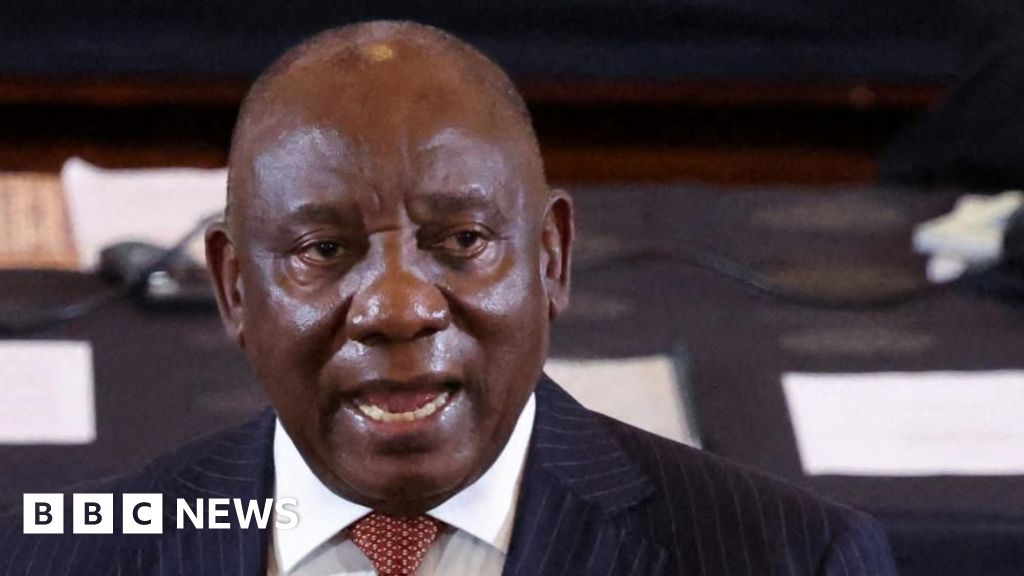A New Era for South Africa: Political Maturity Marked by Unity Government
In a historic moment for South Africa, President Cyril Ramaphosa addressed lawmakers at the symbolic opening of parliament, revealing the vision for the country’s future under a coalition government. The event marked a distinct shift from the past, characterized by interruptions, chaos, and scuffles, signaling what many see as a newfound political maturity.

The Coalition Government: A New Political Landscape
The African National Congress (ANC), which has ruled since the end of apartheid in 1994, failed to secure more than 50% of the vote for the first time in its democratic era. This electoral outcome necessitated the formation of a coalition government, featuring former rivals such as the Democratic Alliance (DA) and the Economic Freedom Fighters (EFF).
The opening session set a tone of cooperation and mutual respect. Notably absent was former President Jacob Zuma, now leading the newly founded uMkhonto weSizwe (MK) party. Despite being barred from running as an MP, Zuma’s party has quickly risen to become the official opposition. John Hlophe, the MK’s leader of the house and a disgraced former justice, pledged to avoid petty political squabbles.
Ramaphosa’s Vision: Unity and Economic Growth
President Ramaphosa laid out a comprehensive agenda focusing on rapid and inclusive economic growth, job creation, and tackling the high cost of basic goods. His humbled ANC, holding the least number of seats since taking office three decades ago, appeared committed to advancing national interests in collaboration with coalition partners.
"Underscoring the determination of all members of the Government of National Unity to work together to advance the interests of all South Africans," Ramaphosa highlighted during his speech. The address fused mainly ANC policies with concessions to the DA’s free-market and pro-business stance, despite ideological differences.
The DA, historically catering to the white minority and seen as a proponent of free-market principles, has joined forces with the ANC to push for economic growth benefiting all South Africans. Ramaphosa emphasized that this growth must empower marginalized communities, including black South Africans and women.
Major Initiatives: Infrastructure and Cost of Living
The unity government plans to make "massive" investments in infrastructure, transforming South Africa "into a construction site." Additionally, there will be efforts to expand the basket of essential food items exempt from the VAT sales tax, alleviating the high cost of living—a long-standing DA policy aimed at eliminating poverty.
John Steenhuisen, DA leader and Agriculture Minister, welcomed Ramaphosa’s proposals, seeing them as an opportunity for constructive negotiation within the government. However, skepticism remained among some opposition figures. Athol Trollip from Action SA criticized the speech as lacking in credibility, and EFF leader Julius Malema expressed doubts about the president’s ability to transform South Africa.
Unaddressed Issues: Foreign Policy and Land Reform
Critics noted that some significant issues were conspicuously absent from Ramaphosa’s address, particularly foreign policy and land reform. Observers like TK Pooe from the Wits School of Governance suggested that the coalition’s diverse viewpoints might temper the ANC’s traditional stances on international issues, such as ties to Gaza and Russia.
Land reform also remains a contentious topic. The MK’s John Hlophe pointed out the lack of discussion on land redistribution without compensation, a central policy for both the MK and many South Africans. The debate continues over whether the state should redistribute land currently owned predominantly by the white minority without compensation.
Toward a Consensus
Although not entirely recapturing the hope symbolized by Nelson Mandela, whose birthday coincided with the parliamentary session, the event marked a significant step towards consensus and unity. Ramaphosa acknowledged the challenges ahead in reaching this consensus but affirmed the government’s commitment to addressing core issues like energy, infrastructure, and local governance.
Conclusion
As South Africa navigates this new political landscape, the government’s ability to collaborate effectively may hold the key to the nation’s future. While radical changes may not be on the immediate horizon, steady progress addressing fundamental issues could pave the way for a more inclusive and prosperous South Africa.
For more information on the new coalition government and its policies, visit the African National Congress official website.
This feature article offers a comprehensive overview of the opening of South Africa’s new coalition government, highlighting key speeches, policies, and historical context. It underscores the collaborative effort required to navigate the nation’s most pressing issues.
